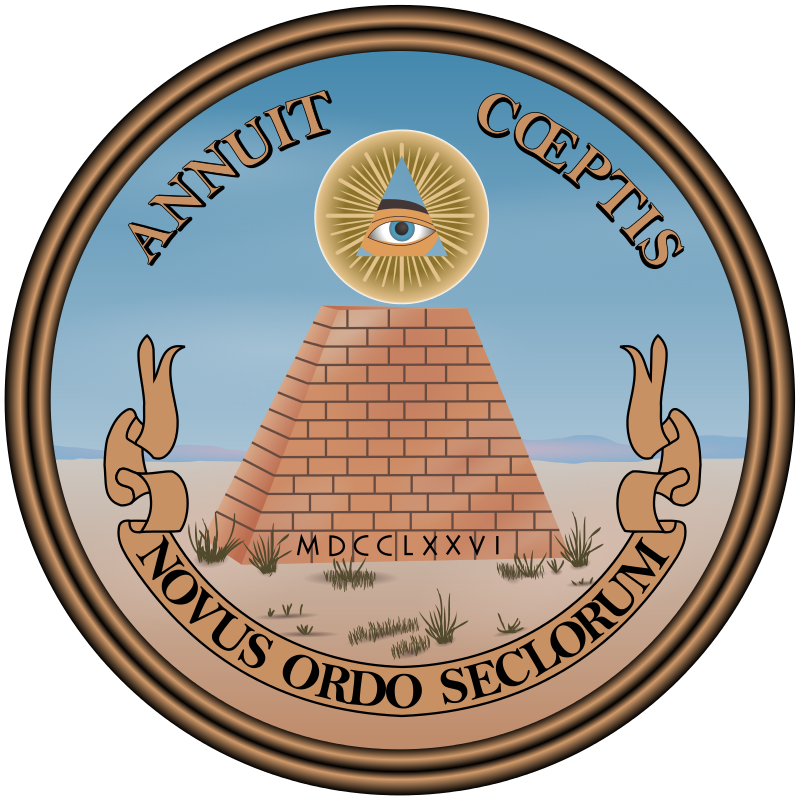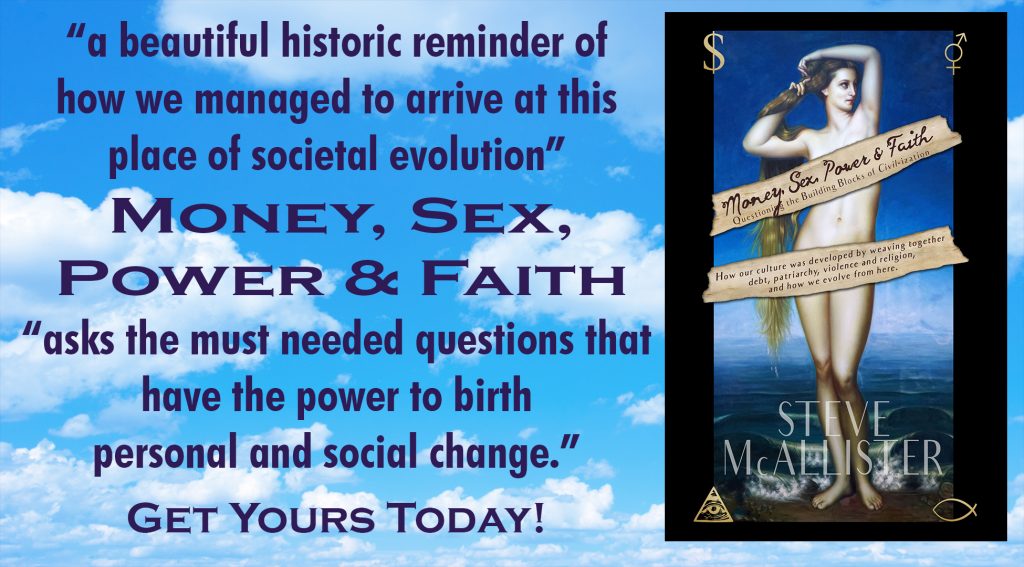The following is a chapter from Money, Sex, Power & Faith.
Order your copy in paperback or for Kindle!
“I made my money the old-fashioned way. I was very nice to a wealthy relative right before he died” – Malcolm Forbes
In 2014, Professor Martin Gilens of Princeton University and Professor Benjamin Page of Northwestern University released a paper titled “Testing Theories of American Politics: Elites, Interest Groups, and Average Citizens” which refers to the United States as a “civil oligarchy”, quoting the book Oligarchy by Professor Jeffrey Winters, also of Northwestern University. The report begins with the announcement of what many of us have known for a while, “Multivariate analysis indicates that economic elites and organized groups representing business interests have substantial independent impacts on US government policy, while average citizens and mass-based interest groups have little or no independent influence.” Using a unique data set that includes measures of the key variables for 1,779 policy issues, the study looked at four theoretical traditions in the study of American politics to find the United States usually practicing Economic-Elite Domination and Biased Pluralism, but not so much Majoritarian Electoral Democracy or Majoritarian Pluralism.

“Americans do enjoy many features central to democratic governance,” say Gilens and Page at the end of their report, “such as regular elections, freedom of speech and association, and a widespread (if still contested) franchise. But we believe that if policymaking is dominated by powerful business organizations and a small number of affluent Americans, then America’s claims to being a democratic society are seriously threatened.”
The First United States Congress consisted of twenty-six Senators (and eventually three alternates) and sixty-four members of the House of Representatives. At the time, these ninety men represented roughly 3 million people, although they were only .002% of the population. In 2015, the 535 members of Congress made up .00017% of the population of 319 million US citizens. Considering that more than half of that percentage is comprised of millionaires, it would seem the 5% of actual Americans who can claim to be millionaires, according to Credit Suisse Research’s recent study, are getting a bit more representation than the rest of us.
At first glance, it may seem that what we’ve been calling a democracy has actually been what Rousseau calls an aristocracy – restricting “the government to a small number; so that there are more private citizens than magistrates.” Yet while he also warned that “democracy degenerates into ochlocracy (mob rule) and aristocracy into oligarchy,” it seems that what we have now is much different than anything our forefathers may have expected.
Most Americans are quite proud of the idea that we are a democracy, however, upon closer scrutiny, it doesn’t take long to realize that the democratic process we get to engage in every two years is little more than a pacifier to calm the crowds while the wealthy elite make the important decisions. Americans have so come to embrace oligarchy that in 2016, they appointed the first billionaire as president.
“In the end, ordinary Americans still get to vote,” explains Jeffrey Winters in his article “Oligarchy and Democracy in America”, “but their choices are vetted via a wealth primary (with $30,000 a plate dinners) that starts long before ordinary citizens hear about candidates or issues. The Supreme Court has facilitated the conversion of money power into political influence by removing limits on the flow of funds into campaigns and equating the use of money to free speech. This gives a handful of Americans up to 40,000 times the ‘money voice’ of their fellow citizens.”
The Citizens United decision by the Supreme Court did much to enable the wealthy to gain control of the American government through their corporations, but over the course of the last few decades, under the guise of “trickle down economics”, the greater part of the wealth in America has been siphoned up. In the 1980s alone, the top 1% of the population increased its wealth 150 times faster than the bottom 99%.
“If we consider the total growth of the US economy in the thirty years prior to the crisis,” says Thomas Piketty in Capital in the Twenty-First Century, “that is, from 1977 to 2007, we find that the richest 10 percent appropriated three-quarters of the growth. The richest 1% alone absorbed nearly 60% of the total increase of US national income in this period. Hence for the bottom 90%, the rate of income growth was less than 0.5% per year. If we move even higher up the salary and bonus scale to look at the top 0.1% or 0.01%, we find even greater increases, with hikes in purchasing power greater than 50% in ten years.”
It isn’t merely that the financial elite have more power than other Americans, but that they have more power than anyone in history. As Winters illustrates, “Surprisingly, the US data on stratification makes us look worse than ancient Rome. The 500 wealthiest Roman senators were roughly 10,000 times as rich as the average person in the empire, who happened to be a landless farmer or a slave. Each of the 500 wealthiest Americans is about 20,000 times as rich as the average person in the bottom 90%. If we focus only on financial resources, the average American in the top 500 has 40,000 times the wealth power of the median citizen. This means that the richest Americans have between two and four times the relative money power of their oligarchic counterparts in the Roman empire.”
Although the financial elite have amassed more wealth than they could possibly know what to do with, few of them seem predisposed to use their advantage to help the rest of their community, but seem intent on squirreling away as much as they can without contributing to the bigger picture. Winters explains how oligarchs “hire armies of tax lawyers, accountants, lobbyists, and wealth management specialists to create complex ‘tax products’ and shelters, and to relocate fortunes to secrecy havens scattered around the globe. This offshore financial dark matter is estimated to be between $5 trillion and $25 trillion, and it is mostly untaxed. The portion of these hidden riches belonging to Americans costs the US treasury $80 billion annually in lost taxes.”
That almost seems like a drop in the bucket compared to the 269 billion dollar deficit we’ll create over the next ten years should Congress, who voted 240-179 to repeal the estate tax in 2015,138 be successful in further protecting fortunes received through hereditary privilege. The estate tax was established in 1916 to break up “those fortunes swollen beyond all healthy limits,” as Theodore Roosevelt put it. One hundred years later, America has decided to buck the healthy limits.
Before we invented money, when greed first started to raise its ugly head, our egalitarian societies would shun those affected and banish them from the village. Whenever one of them would start to hoard instead of sharing with others as they had done for so long, the greedy were seen as mentally ill and untrustworthy. The evolution of this virus of selfishness and our relationship to it has now culminated in it being the most revered of virtues and the driver of our entire economic system.
Not all of the financial elite are so self-serving. When word got around that Congress was looking to repeal the estate tax, William H. Gates Sr., co-chair of the Bill and Melinda Gates Foundation, and Oscar Mayer heir Chuck Collins stepped up to argue in favor of the estate tax. “Once a household accumulates wealth above a certain threshold, say $15 million,” they stated in their book Wealth and Our Commonwealth: Why America Should Tax Accumulated Fortunes, “it has moved beyond the point of meeting its needs and aspirations of itself and its heirs. Such households are now in the nation’s top quarter of the richest 1 percent of households and stand atop a global pinnacle of wealth almost too enormous to contemplate. By the late 1990’s, there were an estimated forty thousand households with more than $25 million and five thousand with over $100 million. They may be asking themselves, as Bud Fox queried speculator Gordon Gekko in the 1987 film Wall Street, ‘How many yachts can you water-ski behind?’”
While almost 15% of Americans, 45 million people, live in poverty, the 400 most wealthy are reported to have a net worth of 2.9 trillion dollars, as much as the combined assets of the bottom 61%. The wealthiest 100 households own assets equivalent to the entire African American population and the twenty wealthiest Americans own more wealth, 732,000,000,000$, than the 152 million people who comprise the bottom half of the American economic spectrum.
Of course, economic inequality is an issue even with the elite. Although those on the Forbes’ list of the 400 wealthiest Americans have a lot of digits in their ledgers, half of that wealth is owned by only forty-five people on the list. Sexual and racial inequality are also prevalent. Of those in the Forbes 400, less than 15% are women, and of those 55 billionaires, only seven of them are self-made entrepreneurs while the rest inherited their wealth or share it with their spouses. Oprah Winfrey is one of those seven who are self-made, and for many years, she was the only African-American on the list. There are also five Latinos on the list, three of whom are heirs to the same Santo Domingo fortune.
“Once poor people are persuaded that their poverty is their own fault,” Ha-Joon Chang wrote in Economics: The User’s Guide, “that whoever has made a lot of money must deserve it and that they too could become rich if they tried hard enough, life becomes easier for the rich.”
The result from this sort of imbalance is that the financial elite have an inordinate amount of influence regarding policy change. As Gilens and Page report, “When the alignments of business-oriented and mass-based interest groups are included separately in a multivariate model, average citizens’ preferences continue to have essentially zero estimated impact upon policy change, while economic elites are still estimated to have a very large, positive, independent impact.”
What we commonly refer to as a democracy is largely an occasional media sensation, giving the populace the opportunity to rally behind pre-selected players from either of the two factions of the Money Party, leaving most feeling marginalized, disenfranchised, and uninspired to take part in the process. This is probably why we have some of the lowest voter turnouts of any country that proclaims to offer democratic elections. Although the idea of American democracy was a beautiful one, so beautiful that most still hold to the delusion that we actually have one, the sobering reality is that Supreme Court Justice Louis Brandeis was right when he observed a century ago, “We can have concentrated wealth in the hands of a few or we can have a democracy. But we cannot have both.”
Order your copy of Money, Sex, Power & Faith today!


